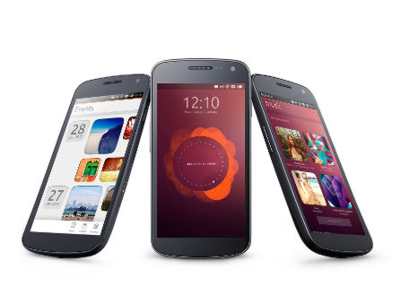| Ubuntu For Phones |
| Written by Ian Elliot | |||
| Thursday, 03 January 2013 | |||
|
As if there weren't enough mobile phone operating systems to contemplate - now Ubuntu does phones and we have yet another flavor of Linux to code for. Diversity is wonderful. It provides choice and hence freedom - unless of course you happen to be the programmer trying to make sure that an app runs on everything possible. Hot on the heals of the news that Mozilla is getting increasingly serious about Firefox OS, we have an announcement from Canonical that Ubuntu For Phones is complete. After two years of work, we now have the latest Ubuntu. As long as everything goes to plan it will be on view at CES in Las Vegas 8 to 11th Jan.
The key strength of Ubuntu For Phones is that it is more or less full Ubuntu. There is an Ubuntu core with a custom user environment suitable for making a phone call as well as running apps. From the manufacturer's point of view things should be easy because they can opt to use Linux/Android drivers. Currently the OS only runs on the Samsung Galaxy Nexus which has been used as a reference platform. From a developer's point of view the environment isn't much removed from Ubuntu 12.10. You can develop native apps using Qt in C or C++. A developer toolkit for native apps is available. Alternatively you can create HTML5 Unity web apps which don't integrate with Ubuntu as well as a native app. The Unity web apps are essentially the same as those introduced in Ubuntu 12.10, complete with Gmail and other social media integration - YouTube, Google Docs and so on. You can see how Mark Shuttleworth explains Ubuntu's mobile strategy - in over 20 minutes of video:
Canonical promises that in the future your apps will be able to work across all four platforms that Ubuntu is targeting - phone, tablet, desktop and TV. It also claims that you can dock an Ubuntu phone and use it as part of a desktop. Of course everything hinges on there being phones that actually run the OS. There are hopes that a manufacturer will create a phone sometime in 2013 or early 2014, but no hard news. You can download an image that will run on the Nexus Galaxy to get your apps working, but this hardly constitutes an app market. A more interesting proposition is Ubuntu For Android which allows the Ubuntu desktop to be launched from an Android phone without modification. However, installing Ubuntu for Android needs the user to effectively "root" their phone and install a ROM image - not something most are willing to do. So it all hangs on Canonical getting a big phone manufacturer to try Ubuntu For Mobile. Given that Samsung is reported to be experimenting with Tizen, the left over after Mego collapsed, perhaps there is still some interest in using something other than Android. However, the market for alternative mobile operating systems looks very crowded - Tizen, Firefox OS, WebOS not to mention Windows Phone 8 and Rim. To be successful, Ubuntu For Mobile needs to get itself a powerful friend. The Disastrous Fragmentation Of Web Apps Open webOS Back From The Dead With Beta 1 To be informed about new articles on I Programmer, install the I Programmer Toolbar, subscribe to the RSS feed, follow us on, Twitter, Facebook, Google+ or Linkedin, or sign up for our weekly newsletter.
Comments
or email your comment to: comments@i-programmer.info
|
|||
| Last Updated ( Thursday, 03 January 2013 ) |


